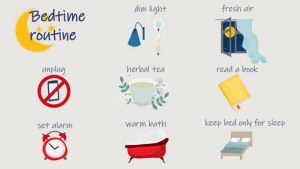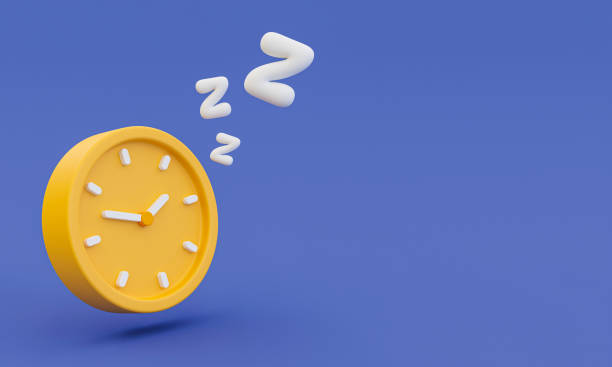Table of Contents
ToggleSleep is an essential part of our daily routine, and getting enough of it is crucial to maintaining good physical and mental health. Unfortunately, many people struggle to get the recommended amount of sleep each night, leading to feelings of fatigue, irritability, and decreased productivity during the day.
In this article, we’ll explore ten habits you can adopt to improve the quality of your sleep and wake up feeling refreshed and energized each morning. By incorporating these habits into your daily routine, you’ll be on your way to a good night’s rest.
Ideal Bedroom Temperature

Maintaining the ideal bedroom temperature can significantly impact your sleep quality. The optimal temperature for a sleep-conducive environment is between 60 to 67 degrees Fahrenheit. Investing in a good quality thermostat can help regulate the temperature and ensure optimal sleep conditions.
Lighting and Noise Control
Lighting and noise control are crucial factors in creating a sleep-conducive environment. Artificial lights can disrupt your body’s natural sleep-wake cycle by suppressing the production of melatonin, the hormone that regulates sleep. Installing blackout curtains or blinds can keep light out of the room. Consider using white noise machines or earplugs to block out external noises that may disturb your sleep.
Choosing the Right Mattress and Pillows
Selecting the right mattress and pillows is critical in creating a comfortable sleep environment. A supportive and comfortable mattress can relieve pressure points, reduce aches and pains, and provide more restful sleep. The type of pillow you use can also affect your comfort level. Pillows that offer proper neck support can help alleviate neck and back pain.
Benefits of a Sleep-Conducive Environment
Creating a sleep-conducive environment has numerous benefits. A comfortable sleep environment can help you fall asleep faster and stay asleep longer, improving your overall physical and mental health. A good night’s sleep can also reduce stress levels, improve memory and concentration, and increase your overall productivity and mood.
Establishing a Consistent Sleep Schedule
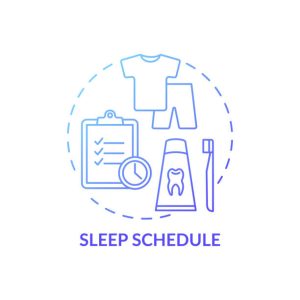
To maintain good sleep hygiene, it’s crucial to establish a consistent sleep schedule. Going to bed and waking up at the same time every day can help regulate the body’s internal clock, leading to better sleep quality and overall health.
The Importance of Winding Down Before Bed
Before bedtime, it’s essential to wind down and prepare the body for rest. Engaging in relaxing activities such as reading a book or taking a warm bath can help calm the mind and ease any tension in the body. Avoiding stimulating activities like watching TV or using electronic devices is also crucial.
Relaxation Techniques for Better Sleep
Several relaxation techniques can aid in falling asleep faster and staying asleep longer. Deep breathing exercises, progressive muscle relaxation, and visualization techniques can all help to quiet the mind and release any physical tension. Incorporating practices like yoga or meditation into your daily routine can also have long-term benefits for sleep quality and overall well-being.
Avoiding Electronics and Blue Light Exposure
One of the most significant contributors to poor sleep quality is exposure to blue light emitted by electronic devices. Blue light can suppress the production of melatonin and interfere with the body’s ability to fall asleep. To combat this, it is essential to limit exposure to electronic devices before bedtime. Using blue-light-blocking glasses, adjusting the screen settings on electronic devices, or switching to warm-colored lighting in the evening can also be helpful.
How Diet Affects Sleep
A balanced diet plays a crucial role in promoting better sleep. Consuming foods rich in nutrients like magnesium, potassium, and calcium can help regulate sleep patterns and promote relaxation. Foods high in tryptophan, an amino acid that helps produce serotonin and melatonin, can also aid sleep. Certain foods and drinks can negatively impact sleep quality. Caffeine, found in coffee, tea, and energy drinks, can keep you alert and awake, making it difficult to fall asleep. Alcohol, while it may initially make you feel drowsy, can disrupt sleep patterns and lead to poor sleep quality.
Best Foods for Promoting Sleep
Incorporating specific foods into your diet can aid in promoting better sleep. Foods like bananas, almonds, and leafy greens contain essential nutrients like magnesium, potassium, and calcium, which can help regulate sleep patterns and promote relaxation. Consuming foods high in tryptophan, such as turkey, chicken, and tofu, can also aid in sleep. Other foods like whole grains, cherries, and kiwi are also known to promote better sleep.
The Effects of Caffeine and Alcohol on Sleep
While caffeine and alcohol are commonly consumed, they can have negative effects on sleep quality. Caffeine, found in coffee, tea, and energy drinks, can keep you alert and awake, making it difficult to fall asleep. It is recommended to limit caffeine consumption to the morning hours and avoid it in the afternoon or evening. Alcohol, while it may initially make you feel drowsy, can disrupt sleep patterns and lead to poor sleep quality. Consuming alcohol can cause more frequent awakenings during the night and decrease the amount of deep sleep.
The Role of Exercise in Promoting Better Sleep
Regular exercise is not only important for overall health but also for promoting better sleep. Exercise helps regulate the body’s circadian rhythm, which is responsible for the sleep-wake cycle. It also increases the amount of deep sleep, which is the most restorative type of sleep. It is important to note that exercising too close to bedtime can actually have the opposite effect and disrupt sleep, so it is recommended to exercise earlier in the day. Incorporating regular exercise into your routine can improve the quality of your sleep and provide numerous other health benefits.
The Importance of Sleep Hygiene for Better Sleep
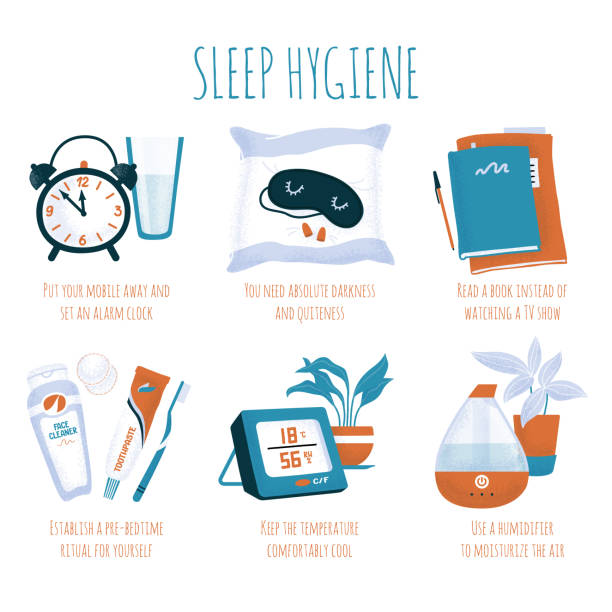
Sleep hygiene is a crucial aspect of overall health and well-being. It refers to the practices and habits that promote quality sleep. Good sleep hygiene involves creating an environment that is conducive to sleep, developing healthy habits, and avoiding disruptions that can interfere with sleep. By prioritizing sleep hygiene, individuals can improve their quality of sleep, which can lead to better physical and mental health.
Tips for Maintaining Good Sleep Hygiene
There are several tips for maintaining good sleep hygiene. First, it is important to create a sleep-conducive environment by keeping the bedroom cool, dark, and quiet. This can help reduce distractions and promote relaxation. Developing a regular sleep schedule and sticking to it can help regulate the body’s natural sleep-wake cycle. This can help individuals fall asleep faster and wake up feeling more refreshed. Other tips include engaging in relaxing activities before bed, such as reading or meditating, and avoiding exposure to blue light from electronic devices before bedtime.
The Role of Personal Hygiene in Sleep Hygiene
Personal hygiene is an essential aspect of sleep hygiene. Maintaining good personal hygiene, such as taking a shower or bath before bedtime, can help relax the body and mind, making it easier to fall asleep. Similarly, wearing clean and comfortable sleepwear can enhance the sleeping experience. Moreover, brushing teeth and washing the face can signal the body that it is time to wind down and prepare for sleep.
How to Avoid Disruptions During the Night
Avoiding disruptions during the night is crucial for good sleep hygiene. This may include reducing exposure to blue light from electronic devices before bedtime, as this can interfere with the body’s production of melatonin, a hormone that promotes sleep. Similarly, avoiding caffeine, alcohol, and nicotine before bedtime can help prevent disruptions to sleep. Other strategies include using blackout curtains or a white noise machine to block out external noises and maintaining a comfortable sleep environment, such as keeping the room at a cool temperature.
Mindset and Stress Management: Improving Sleep Quality
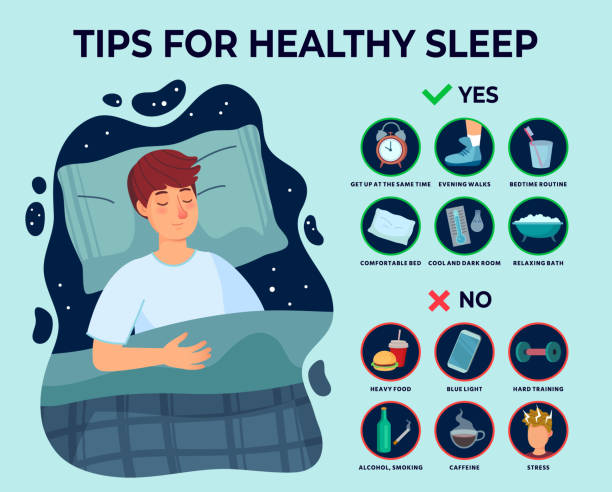
Developing techniques for managing stress and cultivating a positive mindset are crucial components of a healthy lifestyle, particularly for sleep quality. Stress significantly impacts the quality of sleep, making it challenging to fall asleep, stay asleep, or wake up feeling refreshed. It is essential to manage stress and cultivate a positive mindset to improve sleep quality.
Effects of Stress on Sleep
Stress can significantly impact the quality of our sleep, making it difficult to fall asleep, stay asleep, or wake up feeling refreshed. Cortisol, a hormone produced by the body during periods of stress, increases alertness and reduces sleepiness, making it challenging to fall asleep and stay asleep. Chronic stress can also lead to sleep disorders such as insomnia, sleep apnea, and restless leg syndrome, further impacting sleep quality.
Techniques for Managing Stress
Fortunately, there are techniques for managing stress that can help improve sleep quality. One effective method is deep breathing, which involves taking slow, deep breaths and exhaling slowly. This technique can help calm the nervous system, lower blood pressure, and reduce stress levels. Progressive muscle relaxation is another technique that involves tensing and releasing muscles throughout the body, promoting relaxation and reducing tension. Exercise is also an excellent stress management technique that can improve sleep quality by releasing endorphins, which are natural stress and pain relievers.
Cultivating a Positive Mindset for Better Sleep
A positive mindset can have a significant impact on sleep quality. When we approach life with a positive attitude, we are more likely to experience positive emotions such as joy, gratitude, and contentment. These emotions can promote feelings of relaxation and well-being, making it easier to fall asleep and stay asleep. On the other hand, negative emotions such as anxiety, anger, and frustration can make it difficult to sleep and lead to negative sleep patterns.
One way to cultivate a positive mindset is to practice gratitude. This involves taking time each day to reflect on the things in our lives that we are thankful for. Gratitude has been shown to improve mood and reduce stress levels, leading to better sleep. Engaging in activities that bring us joy, such as hobbies or spending time with loved ones, can promote positive emotions and improve our overall well-being. By prioritizing mindset and stress management, we can improve our overall health and well-being, including our sleep quality.
Sleep Disorders: Understanding Common Types, Symptoms, and Treatment Options
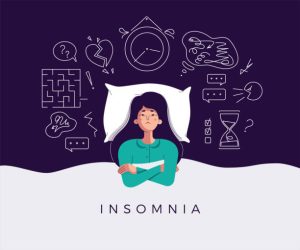
Sleep disorders are a common and often overlooked health issue that can significantly impact a person’s quality of life. In this article, we will discuss the most common types of sleep disorders, their symptoms, and available treatment options.
Insomnia: Causes, Symptoms, and Treatment
Insomnia is characterized by difficulty falling or staying asleep, waking up too early, or experiencing poor-quality sleep. It can be caused by various factors, including anxiety, depression, medication, or chronic pain. Symptoms of insomnia include difficulty falling asleep, waking up too early, and feeling tired upon waking. Diagnosis typically involves a comprehensive medical history, a physical exam, and sleep studies that monitor the patient’s brain waves, breathing, and movements during sleep. Treatment options for insomnia include medication, cognitive-behavioral therapy, and lifestyle changes, such as maintaining a regular sleep schedule, avoiding caffeine and alcohol, and creating a relaxing bedtime routine.
Sleep Apnea: Causes, Symptoms, and Treatment
Sleep apnea is a disorder that causes interruptions in breathing during sleep, leading to fragmented and poor-quality sleep. It can be caused by obesity, smoking, alcohol consumption, or abnormalities in airway structure. Symptoms of sleep apnea include loud snoring, choking or gasping during sleep, and excessive daytime sleepiness. Diagnosis typically involves a sleep study that monitors the patient’s breathing, oxygen levels, and brain activity during sleep. Treatment options for sleep apnea include lifestyle changes, such as weight loss and avoiding alcohol and sedatives, continuous positive airway pressure (CPAP) therapy, and surgical intervention.
Restless Leg Syndrome: Causes, Symptoms, and Treatment
Restless leg syndrome is a disorder that causes an irresistible urge to move one’s legs, often accompanied by uncomfortable sensations such as tingling, itching, or burning. It can be caused by iron deficiency, pregnancy, kidney failure, or genetics. Symptoms of restless leg syndrome typically worsen at night, leading to difficulty falling or staying asleep. Diagnosis typically involves a comprehensive medical history and physical exam, as well as blood tests to check for iron deficiency. Treatment options for restless leg syndrome include medication, iron supplementation, and lifestyle changes, such as regular exercise and avoiding caffeine and alcohol.
Narcolepsy: Causes, Symptoms, and Treatment
Narcolepsy is a disorder that causes excessive daytime sleepiness and sudden episodes of sleep, often accompanied by muscle weakness or loss of muscle control. It can be caused by a deficiency of a brain chemical called hypocretin, which helps regulate wakefulness and sleep. Diagnosis typically involves a comprehensive medical history and physical exam, as well as a sleep study that monitors the patient’s brain activity, breathing, and movements during sleep. Treatment options for narcolepsy include medication, such as stimulants and antidepressants, and lifestyle changes, such as regular exercise and avoiding caffeine and alcohol.
Medications and Sleep Aids: Understanding the Options

When it comes to treating sleep-related issues, medications, and sleep aids are often considered viable options. Before making a decision, it’s important to understand the different types of sleep aids and their pros and cons. Over-the-counter (OTC) sleep aids like antihistamines are readily available and can be effective in inducing sleep. They can also have negative side effects such as grogginess, dizziness, and impaired cognitive function the next day.
Types of Sleep Aids
There are several types of sleep aids available on the market, including over-the-counter (OTC) medications, prescription medications, and natural remedies.
OTC medications are readily available and include antihistamines like diphenhydramine (Benadryl) and doxylamine succinate (Unisom). Prescription medications, such as zolpidem (Ambien) and eszopiclone (Lunesta), are often reserved for those with severe or chronic insomnia. Natural remedies, such as chamomile, valerian root, and melatonin, can also be used as sleep aids.
Pros and Cons of Using Sleep Aids
While sleep aids can be effective in inducing sleep, they also have their drawbacks. OTC and prescription medications can have negative side effects such as grogginess, dizziness, and impaired cognitive function. Prescription sleep aids can also be habit-forming and lead to dependence and withdrawal symptoms.
Natural remedies may have fewer side effects, but their effectiveness is not always backed by scientific research, and they may not work for everyone.
Alternatives to Sleep Aids
If you’re hesitant to use sleep aids, there are alternative options to consider. Lifestyle changes such as creating a regular sleep schedule, avoiding caffeine and alcohol before bed, and creating a comfortable sleep environment can improve sleep quality. Relaxation techniques like meditation and yoga can also be helpful.
Cognitive-behavioral therapy (CBT) is a highly effective treatment for insomnia, as it helps to identify and change negative thought patterns and behaviors that can contribute to sleep disturbances.
Natural Remedies for Better Sleep

To achieve overall well-being, getting a good night’s sleep is essential. Many people face difficulties with insomnia or other sleep disorders. While prescription medications are available to help with sleep, an increasing number of people prefer natural remedies for a more holistic approach.
Herbal supplements have been used for centuries to promote relaxation and sleep. Some of the most popular supplements for sleep include:
Valerian Root
Valerian root has been shown to help improve sleep quality by increasing levels of a neurotransmitter called GABA in the brain. GABA is known to help calm the mind and promote relaxation, which can make it easier to fall asleep.
Chamomile
Chamomile is known for its calming and relaxing properties, and drinking chamomile tea before bed can help promote sleep.
Passionflower, Hops, and Lemon Balm: Other herbal supplements that can help with sleep include passionflower, hops, and lemon balm.
Essential Oils for Better Sleep

Essential oils are another natural remedy that can be used to promote better sleep. Some of the most popular essential oils for sleep include:
Lavender
Lavender essential oil is perhaps the most well-known essential oil for sleep. It has been shown to have a calming and relaxing effect on the body, which can help promote sleep.
Chamomile
Chamomile essential oil has a soothing scent that can help promote relaxation and sleep.
Bergamot, Ylang-Ylang, and Cedarwood: Other essential oils that may help with sleep include bergamot, ylang-ylang, and cedarwood.
Other Natural Remedies for Sleep
Other natural remedies can be used to promote better sleep. Some of these remedies include:
- Establishing a Bedtime Routine: Going to bed and waking up at the same time each day can help regulate your body’s natural sleep-wake cycle. Creating a relaxing bedtime routine can help signal to your body that it’s time to sleep.
- Regular Exercise: Regular exercise has been shown to help improve the quality of sleep, as well as help you fall asleep faster. It’s important to note that exercising too close to bedtime can have the opposite effect and make it harder to fall asleep.
- Creating a Sleep-Conducive Environment: Making sure your bedroom is cool, dark, and quiet can help create a sleep-conducive environment. Investing in a comfortable mattress and pillows can also make a big difference in your quality of sleep.
Herbal Teas for Better Sleep
Herbal teas have been used for centuries as a natural sleep aid. Some of the most popular options include:
- Chamomile tea: Known for its calming properties, chamomile tea can reduce anxiety and promote relaxation, making it an excellent choice for those who have trouble falling asleep.
- Valerian root tea: This tea has been shown to improve sleep quality and reduce the time it takes to fall asleep.
- Passionflower tea: This tea is effective in calming the mind and body, making it a popular choice for bedtime.
- Lavender tea: It is known for its relaxing scent, and drinking lavender tea before bedtime can promote relaxation and improve sleep quality.
Aromatherapy for Better Sleep
Aromatherapy is another natural remedy that can improve sleep quality. Essential oils such as lavender, chamomile, and ylang-ylang are known for their calming properties and can be used in a diffuser or applied topically to the skin. The scent of these essential oils can help reduce anxiety and promote relaxation, making it easier to fall asleep and stay asleep throughout the night.
